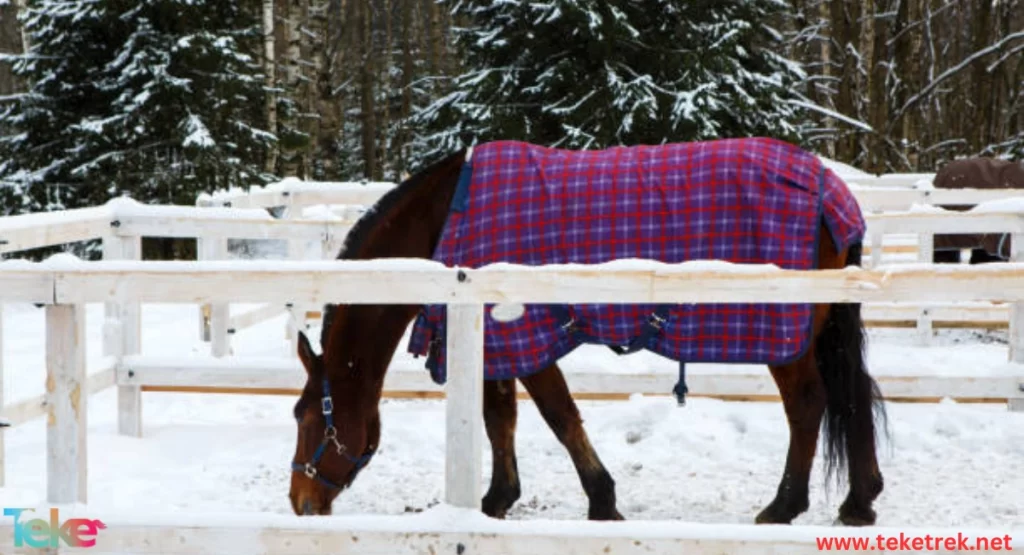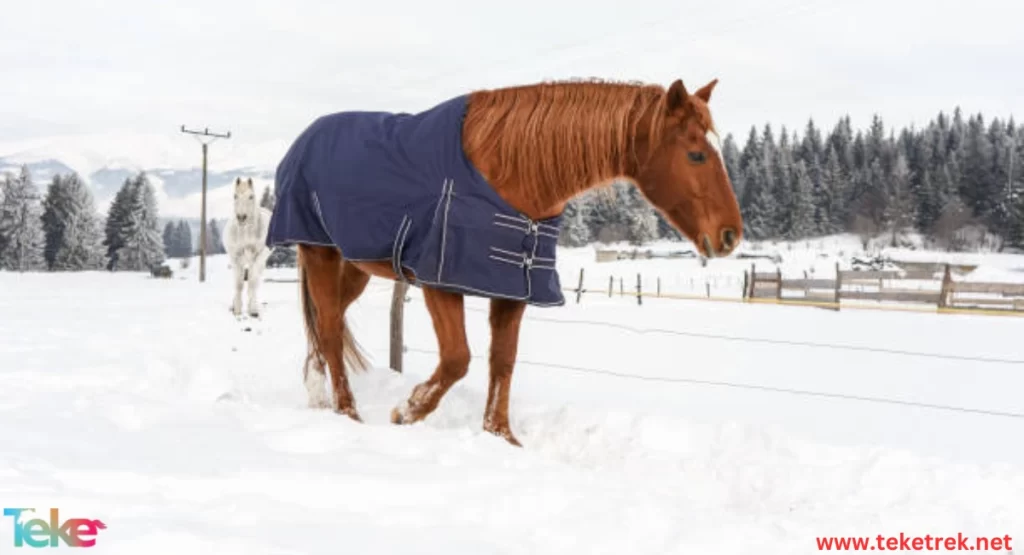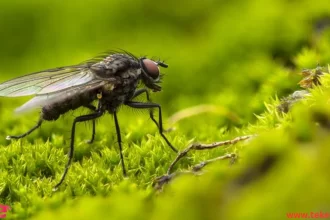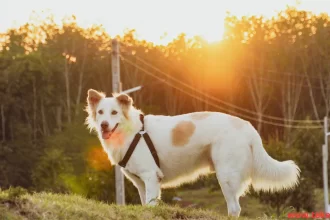As the cold season approaches, the cold of winter begins to affect the health of horses, highlighting the importance of special care for horses to ensure their health and well-being, as the cold is considered a major challenge to the health of horses, as it can lead to multiple health problems if not dealt with properly because they need additional protection from the extreme cold. And harsh weather conditions.
The cold directly affects their immune system, and increases the possibility of diseases such as respiratory infections and skin problems. In addition, the cold can cause additional stress on the body, which reduces the availability of various daily activities, so special attention must be paid to horses during the winter to ensure These beautiful creatures remain healthy and always active.
Therefore, if you are a horse breeder or interested in these powerful animals, follow this article with us and learn about everything that affects your horse’s health during the winter period and avoid it in order to preserve the animal’s health and survival. Follow and learn with us.
Health challenges that horses face in winter:
In the winter, horses face many health challenges that generally affect the activity and health of the horse. Therefore, caution must be taken and confronted to ensure the safety of the horses and ensure that they remain healthy and active throughout the winter period. These challenges are represented in the following:
Low body temperature due to low weather temperatures, which affects her general health if she is not protected from it.
Respiratory infections due to cold and humidity, in addition to difficulty breathing due to cold and dry air.
Skin problems: Excess moisture leads to skin problems such as fungi and itching. Mud and dirt also irritate the skin, leading to skin infections.
Loss of weight and energy due to extreme cold. This is called cold stress.
Digestive problems such as peptic ulcers, as horses may be exposed to stress due to the cold, which causes them problems in the digestive system.
Problems with the hooves as a result of muddy and snowy ground, which causes hoof infections and slips.
Problems with the urinary system as a result of dehydration that may affect horses due to not drinking appropriate amounts of water.

The effect of cold on the skin and fur of horses:
The skin and fur of horses face special challenges due to the extreme cold in the winter, and dry skin is one of the most prominent of these challenges, as cold and dry air can lead to the loss of natural moisture from the horse’s skin, causing cracks and itching and can be painful, affecting the health and comfort of horses. Psychological horses.
Fur plays an important vital role as it is considered a natural insulator against all harsh weather influences and conditions, as it traps heat in the horse’s body and thus protects it from extreme cold in the winter. Therefore, horse breeders must be careful to provide the necessary care, such as using special moisturizers and cleaning. Groom the fur regularly, to ensure that the skin and fur remain in their best condition during the colder months.
Providing heating and proper care:
Horse breeders work to follow some strategies that work to protect the horse from everything that might harm it, including providing heating and appropriate care for it to ensure its health and safety during the cold season. Among these strategies is preparing the stable to be a warm and safe place by insulating the walls and floors to prevent the entry of cold. In addition to providing a good ventilation system to prevent moisture accumulation and keep the air inside it clean.
The breeder also provides blankets that help the horses maintain their body temperature on cold days, and this works to reduce the risk of the horse’s body temperature falling, thus preventing many diseases related to this.
Appropriate nutrition for horses in winter:
In the winter, horse breeders take some measures to take care of the horse’s nutrition to ensure its safety and health and to maintain its activity throughout the days of the cold season. These measures are as follows:
Increasing calories is due to horses’ need for additional energy to maintain their body temperature. This is done by increasing the amount of feed and making sure to provide grains and good hay that provide warmth and heat during digestion.
Providing warm water to it and making sure it does not freeze because very cold water discourages the horse from drinking it in sufficient quantities, which leads to dehydration and resulting health problems. The breeder uses water heaters in addition to placing the water in containers that prevent the water inside them from freezing.
Physical activity and exercise in winter:

Maintaining physical activity for horses during the winter is extremely important to avoid muscle stiffness and maintain their flexibility. Therefore, horse breeders work to keep the horses moving, and this benefits them not only for their physical health, but also for their psychological health, as regular exercise works to prevent health problems. Cold-related problems such as joint and muscle problems.
Therefore, horse breeders must follow the following tips that work to raise the horse’s health, physical and psychological efficiency. These tips are as follows:
Gradually warm up by starting with short, light sessions of exercise to prepare the muscles and improve blood circulation before moving on to more intense exercises.
Use indoor exercises when weather conditions are unsuitable, such as covered arenas, to keep horses warm.
Using light covers and blankets during exercises helps keep the horses warm and avoids sudden cooling of the muscles.
Good care and attention after completing the exercise by drying the horses and using suitable blankets to keep them warm to avoid catching a cold.
Providing sufficient rest periods for horses while avoiding putting too much pressure on them, especially on cold days.
FAQ:
How does winter affect horses?
Winter affects horses through their exposure to cold, which causes them to contract many diseases, in addition to the humidity factor, which greatly affects them.
What happens when a horse gets too cold?
Extreme cold affects horses greatly, as the cold causes them to suffer from a bad psychological state in addition to their exposure to many diseases such as muscle and arterial stiffness, dehydration, skin problems, and others.
How do horses behave when they feel cold?
Horses begin to shiver as a result of their exposure to the cold, in addition to not performing their daily activity, avoiding food and drinking, and appearing to shrink.
How does temperature affect horses?
Temperatures directly affect horses, as their low temperatures and exposure to cold cause them to become infected with many diseases that directly threaten their lives.
Do horses feel cold in the rain?
Yes, they feel because the water lowers their body temperature.
When should horses be brought in for the winter?
Horses are brought into winter when they are ready to handle extreme weather conditions such as cold, snow, and cold air.
Do horses feel cold in the snow?
Yes, horses feel cold in the snow, so the breeder takes some measures, such as heating the barn and placing special horse blankets on it to prevent them from getting cold, which causes many diseases.
How cold is too cold for horses to be outside?
Horses are considered strong animals that can withstand low temperatures, but horses must be brought into barns when temperatures drop to below minus 10, to avoid contracting them with life-threatening diseases.
In conclusion, we find that the effect of the cold winter on the health of horses is one of the points that must be taken into account and paid attention to as much as possible because it works to keep the horse in excellent physical and psychological health. This is done by providing a warm shelter and a suitable environment for it in addition to providing adequate nutrition and clean water for it, as These preventive measures play the important role in keeping horses healthy throughout the cold winter.





